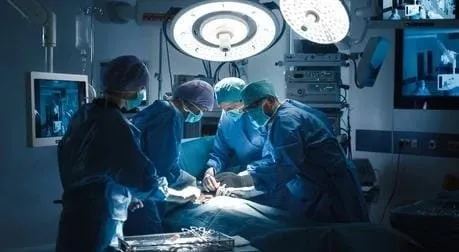Jaypee Hospital here has successfully performed more than 1,000 organ transplantations, the hospital said on Thursday.
The hospital’s Centre of Excellence in Organ Transplantation has over the last eight years has carried out about 1,035 cases of transplantations, which includes kidney and liver.
“We are continuing to strengthen our transplant programmes by using less-invasive procedures for living-donor liver procurement and by adopting methods that will allow us to use organs previously deemed to be marginal. By doing so, we intend to widen access to this life-saving treatment,” said Dr Manoj Luthra, CEO, Jaypee Hospital Noida, in a statement.
There are two ways to donate organs: a living donor — a healthy person who donates one of a pair of organs such as the kidney or part of an organ such as the liver; and/or a deceased donor — one who donates their organs after death (specifically brain death).
A single deceased donor can give life to about six-nine recipients (two kidneys, liver, heart, lungs, pancreas, intestine, eyes and tissues).
Overall organ donation has less uptake in India, compared to most western countries, and even some in Asia. In India, every year almost 5 lakh people need some form of organ transplant, according to the National Organ and Tissue Transplant Organisation (NOTTO).
The pan-India deceased organ donation rate is at 0.34 per million population — the lowest in the world.
This was further exacerbated by Covid-19 pandemic. According to health experts, pandemic-induced lockdowns, fear of infection, and lack of awareness reduced the organ donations.
“Every year thousands of lives are lost due to organ failure. This gap is very unfortunate as organs from an individual can save up to 8 lives. The need of the hour is to raise awareness about the importance of organ donation,” said Dr. Anil Kumar, COO, Jaypee Hospital said.






















